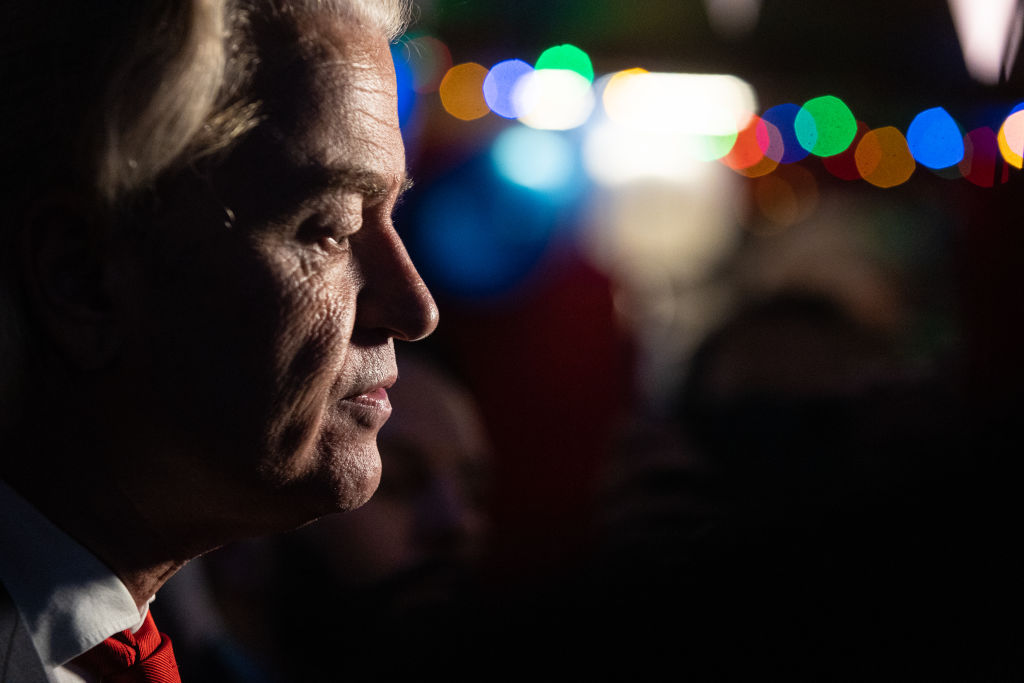
Geert Wilders was the surprise victor in Wednesday’s Dutch elections, after a late surge that catapulted his anti-EU party to a resounding victory over his mainstream rivals.
As people in the Netherlands, and the rest of Europe, adjust to the shock, these are some of the key issues they’ll be considering:
Who is Wilders?
The 60-year-old Wilders has been a fixture in Dutch politics for decades. He started his career as a member of former Prime Minister Mark Rutte’s liberal group but broke away to serve as an independent lawmaker before setting up the anti-migrant Freedom Party, known as the PVV in Dutch.
He has been facing death threats because of his anti-Islamic views and has been under tight police protection since 2004. In 2020, a court found him guilty on insult charges for comments he made about Moroccan immigrants, but the judges imposed no penalty.
He’s seen as the Dutch representative of the kind of populism championed by Donald Trump or Argentina’s newly elected president, Javier Milei.
Read More: Argentina Just Elected an Eccentric Populist Who Seeks Counsel From His Cloned Dogs
How did he win?
Few people considered Wilders a serious candidate at the outset of the campaign but Dilan Yesilgoz-Zegerius, Rutte’s successor at the head of the liberal group, handed him a lifeline by saying that she would consider serving in a coalition alongside the Freedom Party.
Another early frontrunner, Pieter Omtzigt, lost ground after equivocating over whether he really wanted to be prime minister.
Wilders on the other hand set out a more pragmatic line, softening some of his more controversial policies and telling voters he wanted to be part of the next administration.
He then put on a strong showing in the final election debates, appearing more confident than his rivals.
More From TIME
What has he promised?
One signature proposal is for a binding referendum on leaving the European Union. He also wants the Netherlands to withdraw from its international climate obligations and has called for a massive reduction in immigration.
The Netherlands “has been seriously weakened due the ongoing asylum tsunami and mass immigration,” his party says in its election manifesto.
He has pledged to stop sending aid to Ukraine and called for a ban the Koran, and for shutting down mosques.
But in his election-night speech he said he’s willing to compromise in order to secure a coalition agreement, so it’s not clear how many of those policies he would be able to implement.
Can he really secure a coalition?
Wilders’s Freedom Party is projected to win 35 seats but he needs 76 to secure an outright majority. After the exit polls Wilders suggested a center-right coalition that would include outgoing premier Rutte’s former party, newly-launched center-right group New Social Contract and the Farmer Citizens’ Movement.
Together those parties would have 86 seats.
Before the election, Yesilgoz-Zegerius indicated that she might be prepared to govern alongside Wilders but she backtracked somewhat on election night. The farmers’ party said they want to be a part of the coalition talks.
But there’s no guarantee Wilders will clinch the top job. In 1982, the Dutch Labor Party won the most seats, but its center-right rivals wound up at the head of the governing coalition.
More Must-Reads from TIME
- Inside Elon Musk’s War on Washington
- Meet the 2025 Women of the Year
- The Harsh Truth About Disability Inclusion
- Why Do More Young Adults Have Cancer?
- Colman Domingo Leads With Radical Love
- How to Get Better at Doing Things Alone
- Cecily Strong on Goober the Clown
- Column: The Rise of America’s Broligarchy
Contact us at letters@time.com